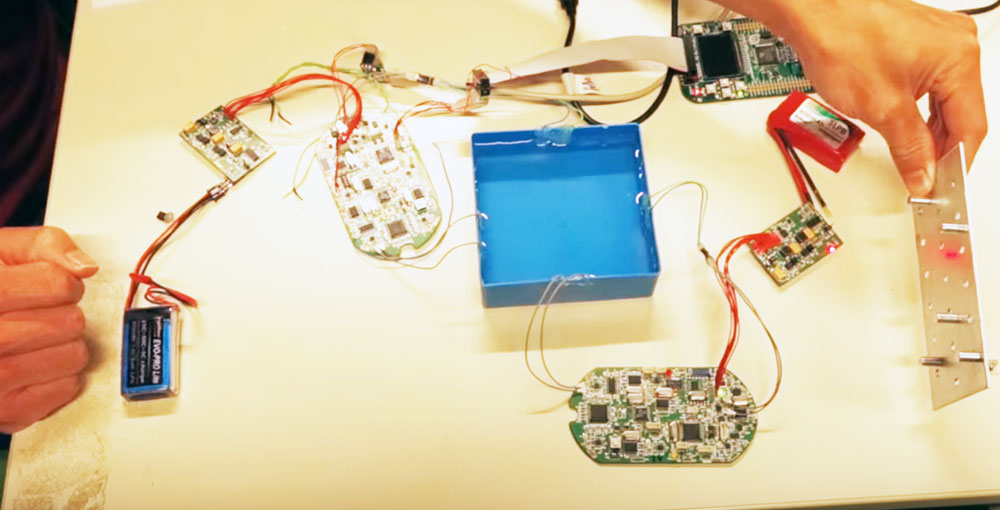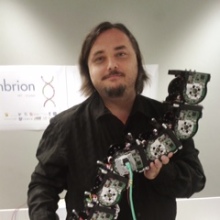
Robohub.org
Scaling up underwater swarmbot research from tabletop ‘aquarium’ to the Venice Lagoon (CoCoRo Video #50/52)

CoCoRo’s humble beginnings.
Our underwater swarm research started in a few cubic centimeters of water with some naked electronics on a table. Over the next three and a half years, our swarm increased by a factor of 40, and the size of our test waters increased by a factor of 40 million as we went from aquariums and pools, to ponds, rivers and lakes, and finally ending up in the salt water basin of the Livorno harbour. Quite a stretch for a small project!
Our new project, subCULTron, which extends the work of CoCoRo, will scale up the swarm size to 120+ robots, and will take place in an even larger body of water: the Venice Lagoon.
The EU-funded Collective Cognitive Robotics (CoCoRo) project has built a swarm of 41 autonomous underwater vehicles (AVs) that show collective cognition. Throughout 2015 – The Year of CoCoRo – we’ll be uploading a new weekly video detailing the latest stage in its development.
tags: AUV, c-Research-Innovation, CoCoRo, EU, Swarming, UAV, underwater, video




